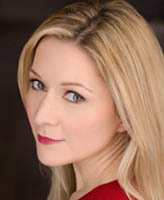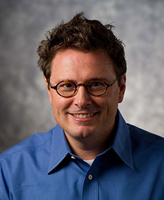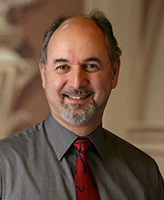 Candida Moss
Candida Moss
This fall the University of Notre Dame joined seven premier universities in Semester Online, an education consortium offering for-credit courses to students attending participating schools. College of Arts and Letters professors Candida Moss and Peter Holland are the first Notre Dame faculty to offer courses in the new format.
Moss, a professor of New Testament and Early Christianity, and Holland, the McMeel Family Chair in Shakespeare Studies and Associate Dean for the Arts, are teaching classes that combine online lectures and readings with dynamic video discussions and rigorous independent assignments.
“The electronic tools associated with these sessions fit really well with the Arts and Letters interest in class discussion,” says Moss. “This is much more than just watching lectures or participating in a Skype conversation. This is real collaborative work.”
Connecting and Collaborating
 Elliott Visconsi
Elliott Visconsi
Notre Dame is pleased to be exploring the frontier of online education as a part of this consortium, says Elliott Visconsi, Chief Academic Digital Officer for the University.
The other schools participating in Semester Online include Boston College, Brandeis University, Emory University, Northwestern University, Wake Forest University, Washington University in St. Louis, and University of North Carolina at Chapel Hill.
“We believe this partnership delivers a first-class experience for our students, and we value especially the personalized, face-to-face dimension of Semester Online,” says Visconsi, an associate professor in the Department of English. “Regular contact with faculty is a crucial component of the undergraduate experience, and we are delighted to see students and faculty connecting and collaborating online in exciting ways.”
The Online Classroom
Students today are used to conducting all kinds of relationships online, so they are comfortable with this type of technology, Moss says. “Semester Online has built a social networking platform akin to Facebook just for the online courses.”
 Peter Holland
Peter Holland
Holland, who teaches Shakespeare in Film for Semester Online, is enjoying the experiment so far.
“I think these students will be kept more on their toes than the average student,” he says. “This should actually produce a different feel of engagement.
“What is central to the Arts and Letters mode of work is the tradition of conversation, debate, discussion, and argument. Something that we think of as fundamentally Socratic, which is exactly what my online classroom is going to be like.”
Theology and Shakespeare
Moss brings her extensive knowledge of the New Testament to Semester Online with her course, The Rise of Christianity. “It uses a variety of historical, sociological, psychological, and theological perspectives to answer the question, why did Christianity succeed and why did the particular form of Christianity we call orthodoxy succeed?”
She teaches the same course in a traditional format on campus. Much like the original, the online version will include papers, exams, and group projects. The Semester Online version also requires students to record video response and participate in live online chats.
“Every class can instantly become a small seminar,” she says. “And the students can provide virtual feedback if they are finding a concept difficult.”
Holland incorporates the ancient and modern in the online version of his popular Shakespeare in Film class. “We are examining how the process of adaptation works and what kind of cultural meanings Shakespeare has, from the earliest bit of filming up to today.”
The online format presents unique teaching opportunities, Holland says. “I was able to tape a series of workshops with actors from Washington, D.C. That’s something I can’t do live on campus. I also do several voice-over commentaries to video clips that students watch. That will give them a different, dynamic connection.”
Online Potential for Notre Dame
Both professors relish the opportunity to take part in this new stage of Notre Dame education.
“I think it’s great that Notre Dame is at the cutting edge of this kind of online work,” says Holland. “It has the potential to be a really exciting development and I’m really proud to be involved in the initiative.”
Visconsi agrees. “We look forward to next steps in this exciting venture.”
Learn More >
- Candida Moss faculty page
- Peter Holland faculty page
- Elliott Visconsi faculty page
- Department of Theology
- Department of Film, Television, and Theatre
- Related story: Notre Dame to Offer Courses Through Online Education Consortium
- Notre Dame Magazine story about Semester Online
- Semester Online
- Semeter Online Shakespeare in Film course promo
Originally published by at al.nd.edu on October 24, 2013.